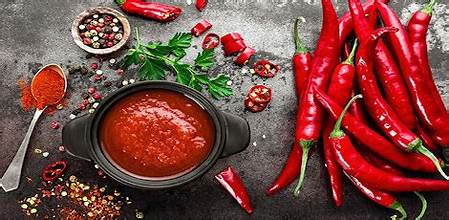Spicy Foods:: In today’s fast-paced lifestyle, indulging in oil-laden and spicy cuisines has become a common practice. While these foods tantalize our taste buds, they often come with a hidden price tag in terms of health repercussions. Let’s delve into the adverse effects of incorporating excessive amounts of oil and spicy ingredients into your diet and explore healthier alternatives.
The Harmful Impact of Oil Consumption on Your Body
1. Weight Gain and Obesity
Excessive consumption of oil-rich foods can significantly contribute to weight gain and obesity. Oils are dense in calories, and when consumed in large quantities, they can lead to an imbalance in calorie intake versus expenditure, ultimately resulting in unwanted weight gain.
2. Increased Risk of Cardiovascular Diseases
A diet high in oils, particularly those containing saturated and trans fats, can elevate cholesterol levels and increase the risk of cardiovascular diseases such as heart attacks and strokes. These unhealthy fats can clog arteries, leading to reduced blood flow and heightened blood pressure.
3. Digestive Issues
Consuming oily foods in excess can wreak havoc on your digestive system. They may slow down digestion, leading to discomfort, bloating, and even constipation. Additionally, fried foods can irritate the lining of the stomach, exacerbating symptoms of acid reflux and indigestion.
4. Skin Problems
Oil-rich diets have been linked to various skin issues, including acne and oily skin. Excess oil consumption can disrupt the natural balance of oils in the skin, leading to clogged pores and inflammation, which manifest as acne breakouts and other dermatological concerns.
The Detrimental Effects of Spicy Foods on Your Health
1. Digestive Distress
While the heat from spicy foods can add a kick to your meals, it may also cause digestive discomfort for some individuals. Spicy ingredients such as chili peppers can irritate the lining of the stomach and intestines, leading to symptoms like heartburn, stomach pain, and diarrhea.
2. Acid Reflux and Heartburn
Spicy foods are notorious for triggering acid reflux and heartburn, particularly in individuals who are prone to gastrointestinal issues. The capsaicin compound found in chili peppers can relax the lower esophageal sphincter, allowing stomach acid to flow back into the esophagus and causing discomfort and burning sensations.
3. Increased Risk of Gastric Ulcers
Consuming spicy foods regularly may increase the risk of developing gastric ulcers, especially in individuals with a history of gastrointestinal problems. Spicy ingredients can aggravate existing ulcers and delay the healing process, leading to prolonged discomfort and complications.
4. Exacerbation of Irritable Bowel Syndrome (IBS)
For individuals with irritable bowel syndrome (IBS), spicy foods can exacerbate symptoms such as abdominal pain, bloating, and diarrhea. The irritant properties of spicy ingredients can trigger inflammation in the gastrointestinal tract, worsening the discomfort experienced by individuals with IBS.
Embracing Healthier Dietary Choices
While occasional indulgence in oil and spicy foods can be enjoyed as part of a balanced diet, moderation is key to avoiding the adverse effects discussed above. Consider incorporating the following healthier alternatives into your meals:
- Opt for Healthier Cooking Methods: Instead of deep-frying, try baking, grilling, or steaming your foods to reduce the amount of oil used in preparation.
- Choose Lean Protein Sources: Select lean cuts of meat, poultry, and fish over fatty cuts to minimize oil intake while still obtaining essential nutrients.
- Experiment with Herbs and Spices: Instead of relying solely on spicy ingredients, experiment with a variety of herbs and spices to add flavor to your dishes without excessive heat.
- Prioritize Whole Foods: Incorporate plenty of fruits, vegetables, whole grains, and legumes into your diet to provide essential nutrients and fiber while reducing reliance on oily and spicy foods.
Disclaimer : इस न्यूज़ पोर्टल को बेहतर बनाने में सहायता करें और किसी खबर या अंश मे कोई गलती हो या सूचना / तथ्य में कोई कमी हो अथवा कोई कॉपीराइट आपत्ति हो तो वह [email protected] पर सूचित करें। साथ ही साथ पूरी जानकारी तथ्य के साथ दें। जिससे आलेख को सही किया जा सके या हटाया जा सके ।














